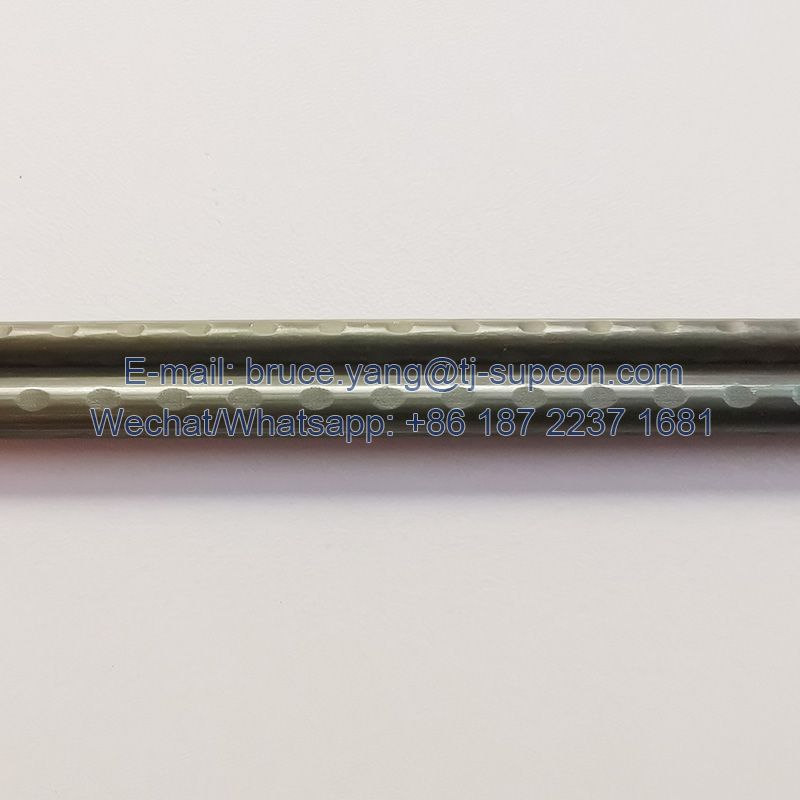In the world of construction and civil engineering, materials play a vital role in ensuring the durability and safety of structures. One such material, PC (Prestressed Concrete) wire, holds a unique position due to its remarkable strength and adaptability. This article delves deeper into the strength of PC wire and its wide-ranging applications, shedding light on the factors that influence its tensile strength and the critical role it plays in the construction industry.
The Versatile PC Wire:
Before we delve into the impressive strength characteristics of Prestressed Concrete wires, it's essential to understand what makes it such a versatile and indispensable material in construction.
PC wire is a high-strength steel wire, typically made from materials like carbon steel or low-relaxation steel. What sets it apart is its capacity to withstand pulling or stretching forces without breaking, making it a cornerstone of prestressed concrete structures. These structures benefit from the inherent strength and adaptability of PC wire, which allows engineers and designers to create resilient buildings, bridges, and other infrastructure.
Factors Influencing Tensile Strength:
The tensile strength of PC wire can vary depending on several key factors:
Material Type: PC wire can be manufactured from various types of steel, with different carbon contents and alloy compositions. The choice of material directly impacts the wire's tensile strength. Carbon steel and low-relaxation steel are commonly used due to their high tensile strength properties.

Diameter: PC wires come in various diameters, and the wire's thickness plays a significant role in determining its strength. Thicker wires generally have higher tensile strength. Engineers select the appropriate diameter based on the structural requirements of the project.
Manufacturing Process: The manufacturing process used to produce PC wire can influence its strength. Specialized processes can enhance the wire's properties, including its ability to withstand tension.
Heat Treatment: Some PC wires undergo heat treatment processes to improve their tensile strength. Heat-treated wires are often used in critical applications where maximum strength is required.
Impressive Tensile Strength:
Typically, PC wires exhibit an impressive tensile strength that falls within the range of 1500 MPa (megapascals) to 2200 MPa or even higher. This range signifies the wire's remarkable ability to withstand tremendous pulling forces, a characteristic that makes it ideal for its primary function - providing prestress or pre-tension to concrete structures.
Tailoring PC Wire Strength to Project Requirements:
The selection of PC wire strength is a critical decision in construction projects. Engineers and designers carefully consider the specific structural requirements of the concrete element being reinforced. For example:
A bridge designed to carry heavy loads over long spans may require PC wires with the highest tensile strength available to ensure structural integrity and safety.
In smaller or less demanding projects, PC wires with lower tensile strength may be sufficient, offering a cost-effective solution without compromising performance.
Low Relaxation Properties:
In addition to their high tensile strength, some PC wires are engineered to have low relaxation properties. Low relaxation wires minimize the elongation or stretching that can occur over time in traditional high-carbon steel wires under tension. This characteristic ensures that prestressed concrete structures maintain their intended tension levels over the long term, contributing to their durability and longevity.
Conclusion:
In summary, Pre-stressed concrete wire is a construction material celebrated for its exceptional tensile strength and versatility. Its strength, which typically falls within the range of 1500 MPa to 2200 MPa or more, depends on factors such as material type, diameter, manufacturing processes, and heat treatment. The ability to tailor PC wire strength to meet the specific demands of construction projects makes it an invaluable component in the creation of safe, resilient, and enduring concrete structures. Whether it's a towering skyscraper or a sturdy bridge, PC wire plays a pivotal role in shaping the modern world of construction.

Comments
0